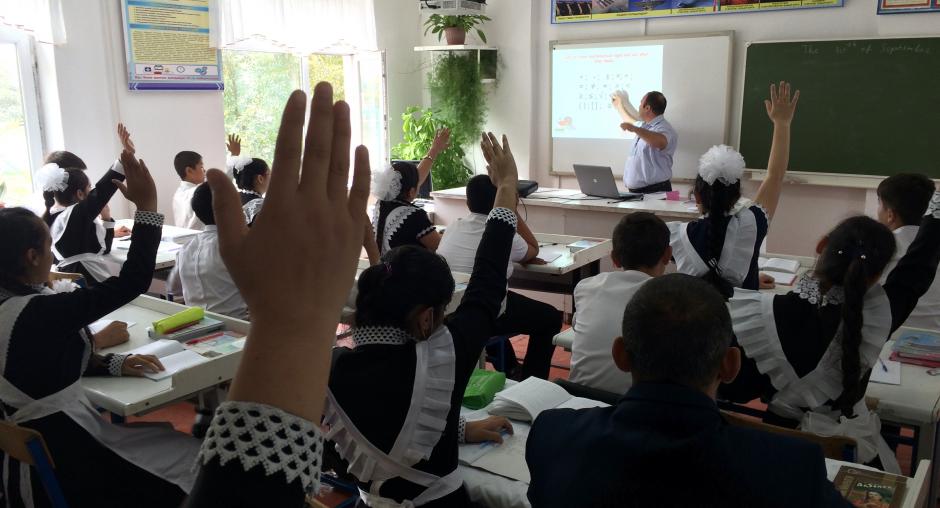OSCE High Commissioner on National Minorities supports knowledge-sharing on multilingual education in South Kazakhstan

SHYMKENT, Kazakhstan, 30 September 2015 – The benefits of multilingual education was the focus of a two-day conference co-organized by the OSCE High Commissioner on National Minorities (HCNM) Astrid Thors, which ended today in Shymkent, Kazakhstan. The conference brought together more than 500 participants from Kazakhstan, Tajikistan and Kyrgyzstan.
Organized in co-operation with the National In-Service Teacher-Training Centre (ORLEU) and ORLEU’s local office in Shymkent, the conference gathered experts, trainers, directors and teachers working in multilingual education in the three countries as well as representatives of the respective Education Ministries.
“Education, as one of the most important tools to promote social cohesion, should be a key element of any integration policy,” said Deputy Head of the OSCE Programme Office in Astana Mirco Günther. “It is crucial for all members of society, as it gives them the skills necessary for their full and effective participation on an equal footing in all spheres of life. And as any teacher will tell you, children learn best when they really feel comfortable and safe at school – that is most likely to happen when teachers can speak to children in a language they understand.”
During the discussion on promoting multilingual education in schools with national languages of instruction, the HCNM’s expert on multilingual education, Tatiana Stoianova, presented the results of her research into the situation of national-minority education in Kazakhstan ten years after it was first introduced. She found that there had been many advances and some schools really excelled in the provision of multilingual education. However, she also concluded that more progress needs to be made in this field.
Speaking about the event, Thors said she was pleased to support the promotion of multilingual education in Central Asia through events such as this. “Respect for the rights of national minorities, including their right to education in and of their mother tongues, is of central importance in conflict prevention. This is a good moment to take stock of progress made and identify the key challenges for the future in our joint efforts to promote multilingual education in Central Asia.”
On the second day of the conference, participants visited schools offering multilingual education to see how the practice is implemented on the ground.
Fifteen practitioners from Kyrgyzstan and the experts from Tajikistan’s schools and the Education Ministry will stay two additional days to gain a deeper understanding of local multilingual education practices.
Tajikistan has yet to implement multilingual education while Kyrgyzstan is currently gaining more experience of providing multilingual education and pilot schemes were extended to an additional 39 schools across the country this year.
